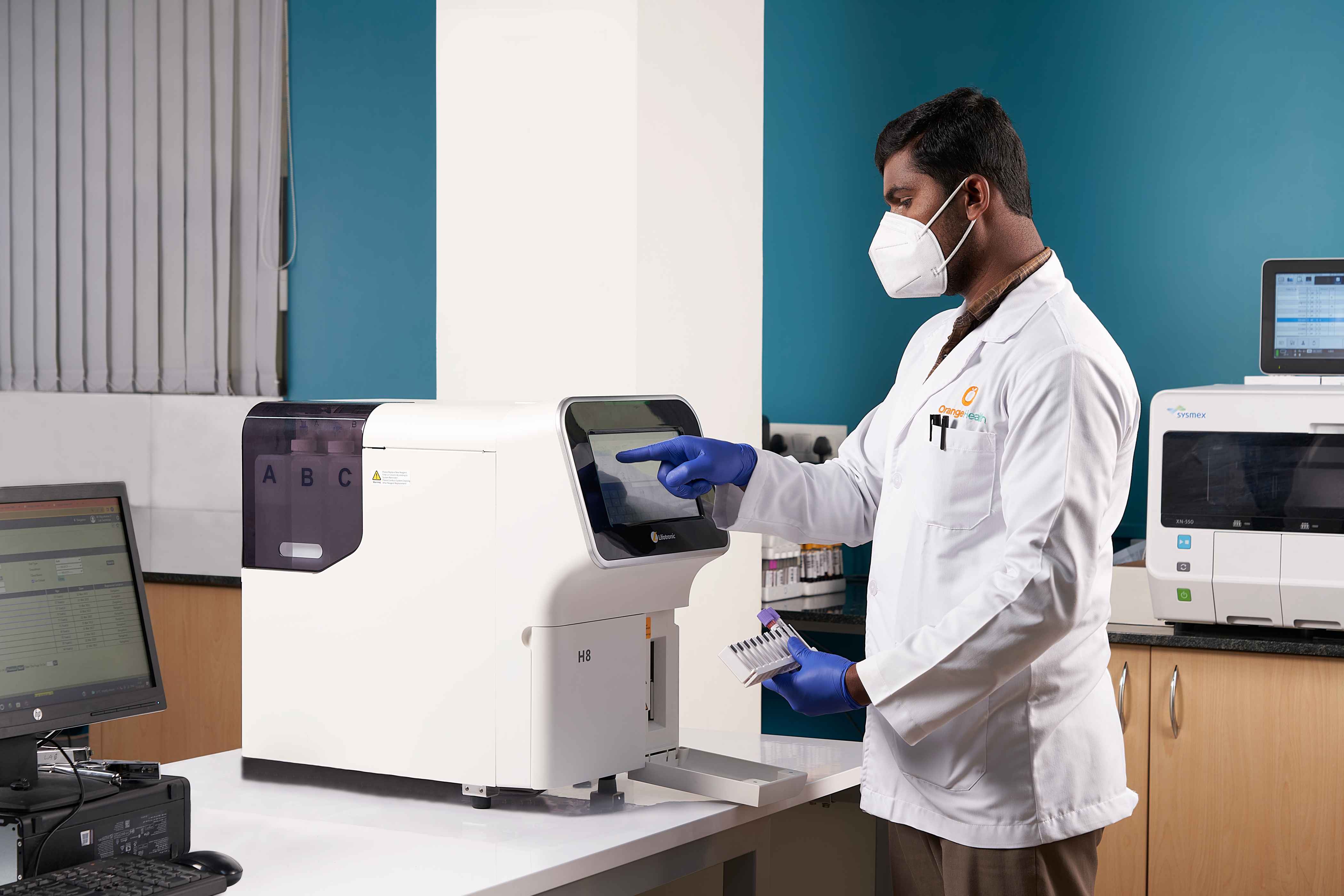Search for tests or checkups
SupportHow to Prepare for Your Fasting Blood Sugar Test: Tips for Accurate Results
Understanding Diabetes and the Fasting Blood Sugar (FBS) Test
Diabetes is a global health concern affecting people of all ages. It occurs when the body cannot produce enough insulin or use it effectively, leading to increased blood sugar levels. The Fasting Blood Sugar test is essential for diagnosing diabetes and prediabetes. By measuring glucose levels after fasting, it helps in the early detection of conditions like type 2 diabetes, prediabetes, and gestational diabetes.
For those in Bangalore, this guide will explain what to expect from the FBS test, how to prepare for it, and tips for accurate results.
What to Expect from a Fasting Blood Sugar Test
The FBS test is simple and involves drawing a blood sample, typically from a vein in your arm, after fasting. Fasting ensures no food or drink influences your blood sugar levels, providing a true measurement of how your body manages glucose without external factors. Elevated levels could indicate a problem with glucose entry into cells, a sign of diabetes or prediabetes. Since these conditions often show no early symptoms, regular testing is key to detection. For convenience, you can opt for an FBS test at home, allowing easy monitoring from your comfort.
Get Tested for Fasting Blood Sugar at Your Home: Fasting Blood Sugar Test in Delhi | Fasting Blood Sugar Test in Bangalore | Fasting Blood Sugar Test in Noida | Fasting Blood Sugar Test in Mumbai | Fasting Blood Sugar Test in Hyderabad | Fasting Blood Sugar Test in Gurgaon
Guidelines Before Taking a Fasting Blood Sugar Test
Preparing properly for an FBS test is essential for accurate results, aiding effective blood sugar management. Here are some key guidelines to follow:
Duration of Fasting
Before undergoing a Fasting Blood Sugar (FBS) test, it’s essential to fast for 8-12 hours. During this period, avoid any food or drinks except water. Drinking water is allowed as it doesn’t affect blood sugar and keeps you hydrated. Proper fasting ensures accurate blood sugar levels, preventing skewed results and misdiagnosis.
Foods to Avoid
Certain foods and drinks can affect your FBS results. Avoid sugary drinks like soda, juice, or coffee at least 12 hours before the test. Also, refrain from chewing gum, smoking, and drinking alcohol, as they can elevate blood sugar levels. Foods high in refined carbs or sugar can linger in your system and cause false elevations in your readings.
Avoid Exercise
Exercise before a fasting blood test can alter glucose levels, so it’s best to avoid intense workouts. While regular exercise benefits overall health, avoid it right before your test to ensure accurate results.
Stay Hydrated
Although other drinks are restricted, drinking water during fasting is beneficial. Hydration improves glucose processing and can make blood collection smoother, enhancing your comfort during the test.
Medications and Health Conditions That May Affect Test Results
Certain medications can interfere with test results. Whether you’re taking the FBS test at home or in a clinic, inform your doctor about any prescription medications. They may adjust your dose timing to ensure accuracy. If you’re on diabetes medication, consult your doctor for specific instructions.
Factors like poor sleep or stress can also affect blood sugar. Stress hormones and lack of sleep can temporarily raise glucose levels. Discuss any stress or sleep disturbances with your doctor to account for these factors in your test results.
Practical Tips for a Smooth Testing Experience
Here are additional tips to ensure a smooth experience with your Fasting Blood Sugar (FBS) test, whether at home or in a clinic:
- Schedule Early: An early morning test helps reduce fasting duration, making it easier to manage.
- Stay Calm: Relaxation techniques, like meditation, can help calm nerves before the test.
- Bring a Snack: After the test, having a small, balanced snack on hand can help restore energy levels.
- Discuss Health Concerns: Talk to your healthcare provider about medications or health conditions that could affect your results.
Before taking the test, it’s helpful to research the Fasting Blood Sugar (FBS) cost to be prepared for any expenses.
Conclusion
Preparing for an FBS test involves more than just skipping breakfast. By following these guidelines, managing medications, and understanding the test process, you can achieve accurate results. Proper preparation enables effective diabetes diagnosis and provides valuable insights into blood sugar regulation. Taking the right steps leads to a more reliable diagnosis, which can improve diabetes management and care.

Understanding HMPV: Causes, Symptoms - Should You Be Concerned?

Post-Prandial Blood Sugar Levels: The Role of Your Meal Choices
